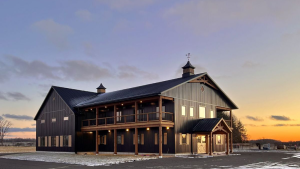Alternative energy developer RenTech Inc. plans to build a biomass plant to produce jet fuel in White River, Ont., which could create 400 long-term jobs in the province.
WHITE RIVER, ONT.
Alternative energy developer RenTech Inc. plans to build a biomass plant to produce jet fuel in White River, Ont., which could create 400 long-term jobs in the province.
Ontario’s Ministry of Northern Development, Mines and Forestry has awarded Rentech the use of a forestry lot about 300 kilometres northwwest of Sault Ste. Marie.
The company plans to convert about 1.1 million cubic metres per year of Crown timber into 85 million litres annually of low-carbon jet fuel.
“This will be the largest renewable clean jet fuel program in the world,” Rentech’s CEO D. Hunt Ramsbottom said.
“This will be the first of its kind where the province, the federal government, local communities and a private company come together and this will be the first plant of its kind in the world.”
The investment, in partnership with Pic River First Nations community and potentially the federal government, is expected to total $500 million, the California-based company announced recently in Sault Ste. Marie.
The region has suffered significant job losses in recent years as the forestry sector has struggled to cope with falling demand for pulp and paper products. The lumber sector has also been squeezed by the downturn in the American housing market.
Rentech chose White River as the site for its new project because it has infrastructure from an existing mill, as well as access to water, power and rail.
Rentech is awaiting approval of an application to Sustainable Development Technology Canada, whose $500 million NextGen Biofuels Fund can set aside a maximum $200 million in federal government funding. The company is expected to repay those costs from a percentage of its cash flows once the project is running.
Canadian Press










Recent Comments
comments for this post are closed